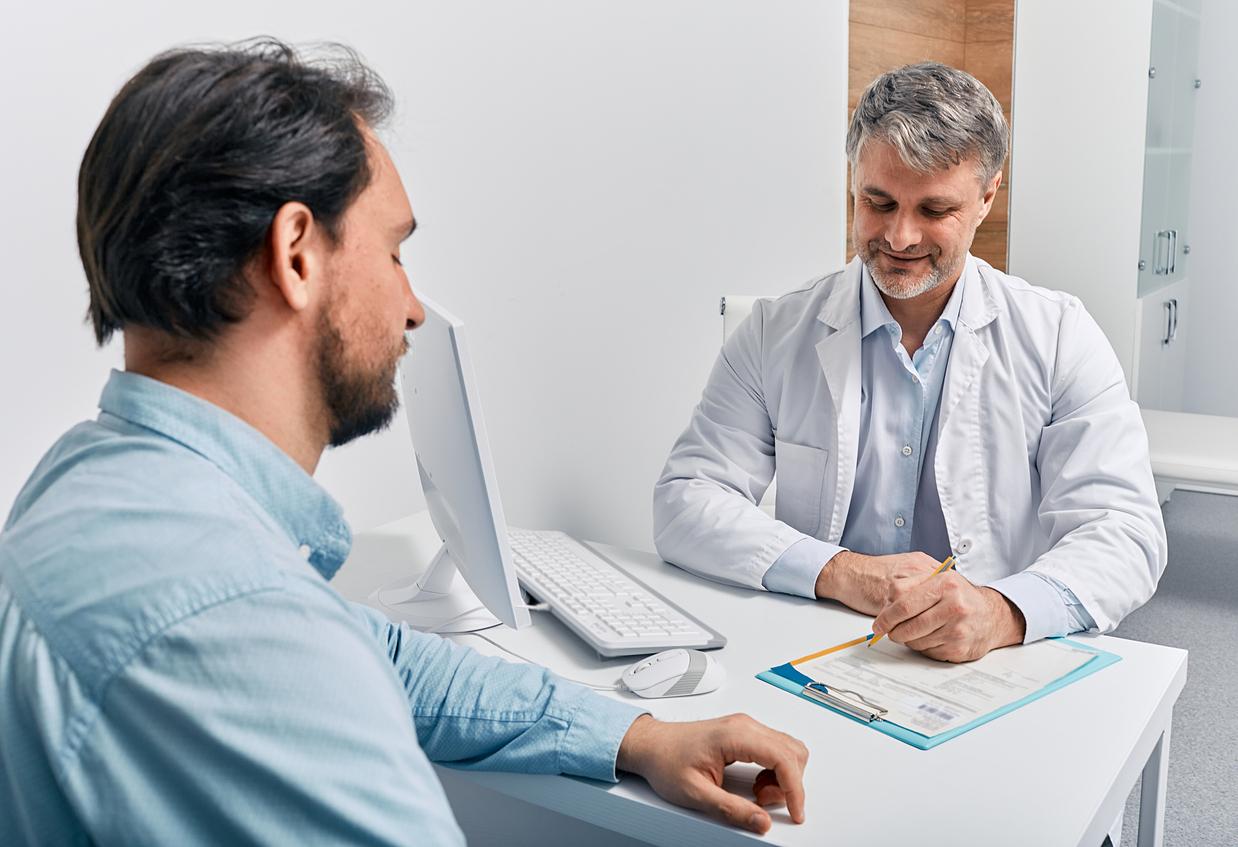If you suffer from a hemorrhoidal crisis, do not wait months before going to the doctor, you could miss a more serious problem.
-1572944526.jpg)
Do you suffer from chronic itching in the anus? Consult! This is essentially the message of doctor Philippe Godeberge, gastroenterologist in Paris. Because if the attacks of hemorrhoids are most often benign, “it is a question of not being mistaken and of avoiding the progressive deterioration of the disease”, explains the specialist in a video for Medical Frequency.
Out of modesty or laziness, people wait an average of 18 months before consulting for painful hemorrhoids. “As the symptoms come and go, the temptation is strong to wait for their spontaneous disappearance”, deplores Philippe Godeberge who invites to be wary, in particular in the event of bleeding.
If you are bleeding, your doctor will carry out an exploration by rectosigmoidoscopy to eliminate a possible other more serious pathology. “If this examination is not pleasant, it is not painful”, assures Philippe Godeberge. It is indicated in the search for any affection of the rectum and the lower part of the colon. It is practiced with a short colonoscope and is performed without anesthesia after administration of two consecutive enemas: one the night before, the other two hours before the examination. The latter lasts about 15 minutes and is normally well tolerated.
Surgery affects less than 5% of patients with chronic hemorrhoids
If you are not bleeding, your doctor will perform a simple proctologic examination including an examination of the anal margin and a digital rectal examination. Depending on the nature of the crisis (is it due to internal hemorrhoids Where external ?) and its severity, he may prescribe an ointment containing nitroglycerin or nifedipine to relieve the pain by reducing the pressure in the veins.
He will also recommend that you eat as much fiber as possible and exercise to boost your transit and overcome constipation. It will also remind you to drink plenty of water, avoid alcohol and too spicy foods, and not spend too much time sitting on the toilet. Indeed, in this position, the muscles are relaxed, which leads to an unwelcome influx of blood.
In cases of regular attacks, surgery exists. The surgeon will then put you under local anesthesia and remove a small area around the anus, including the affected veins. But the fear of this operation should not prevent a consultation with the doctor, insists Philppe Godeberge. Indeed “this treatment concerns less than 5% of chronic hemorrhoids.” And to conclude: “There are plenty of other solutions, including medical treatments, before reaching this solution.”

.















